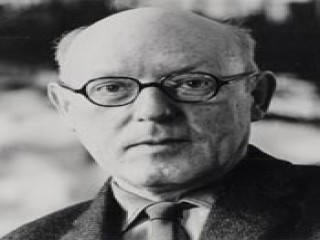
Howard Ferguson (composer) biography
Date of birth : 1908-10-21
Date of death : 1999-10-31
Birthplace : Belfast, Ireland
Nationality : Irish
Category : Famous Figures
Last modified : 2011-06-21
Credited as : Composer and musicologist, piano Violin Sonata No. 1 ,
Howard Ferguson's musical career is notable in that he made significant contributions in several areas of music. He was a performer, a composer, and an editor of music. His music has ranged from orchestral works to pieces for choir; yet all of his work was characterized by lyricism, good use of structure and harmony, and an adherence to the classical model of music.
Ferguson, through his editing, resurrected early keyboard works which had laid dormant for years. He also had the wherewithal to know when he was done with composition; he stopped composing midway through his career claiming that he'd said all he wished to say.
Howard Ferguson was born in Belfast, North Ireland in 1908 to Stanley (a banker) and and Frances (Carr) Ferguson. When Ferguson was 13, his piano playing was noticed by the musician Harold Samuel, who offered to direct Ferguson's music education. With the consent of his parents, he relocated to London to receive a general education at Westminster School between 1922-1924. From 1924-1928 Ferguson continued his musical education at the British Royal Conservatory of Music, where he studied conducting (under Sir Malcolm Sargent), composition (with O.R. Morris) and piano (with Samuel).
In the musical world, Ferguson was first noticed and taken seriously in 1932, when his Violin Sonata No. 1 was performed by Menges and Samuel. Ferguson continued to receive recognition when his Octet was first performed in November 1993, and when his Two Ballads for Baritone and Orchestra were performed at the Three Choirs Festival in Gloucester in 1935.
Ferguson continued to compose in a steady fashion until 1959, when he decided that he'd reached a point where he'd "said everything he needed to say." His last two compositions were also written for the Gloucester Three Choirs Festival; including Amore langueo (composed in 1956) and The Dream of the Road (1959).
Ferguson's musical career was partly devoted to instruction. Between 1948-1963 he taught composition at the Royal Academy of Music; many of his students ended up becoming accomplished composers in their own right.
With the cessation of composing, Ferguson began to concentrate on editing early keyboard music. His love of musical craftsmanship and his experience as a performing pianist prepared him well for this transition. He compiled anthologies of early keyboard music that appealed to accomplished musicians and amateurs alike. In 1975 he authored and published the book Keyboard Interpretation.
Ferguson continued to perform recitals during and after his composing career. He collaborated and performed with the pianist Denis Matthews and the Violinist Yfrah Neaman and performed worldwide. He was also instrumental in organizing daily wartime concerts at London's National Gallery between 1939-1946.
Ferguson's works continued to be re-recorded and released. In an American Record Guide, review of some Ferguson compositions, the reviewer noted that Ferguson composed with "style and warmth" and was at least as good a song writer as Finzi or Samuel Barber. In another American Record Guide review of an Ferguson Octet, the reviewer referred to the music as a "cow-pat" style of British music; music that evoked pastoral images rather than being difficult to listen to.
Another reviewer from American Record Guide referred to Ferguson's Four Short Pieces as having melodic expression and rhythmic vitality. His work has also been characterized as having clarity and economy of expression. This style was developed in his early composing career and he used it over and over, with originality and success. Ferguson composed a total of 24 works, including four symphonies or orchestral works, 13 works for chamber orchestras, six choral or vocal works, and one piece for ballet. In his later years, Ferguson has made his home in Cambridge, England.
















